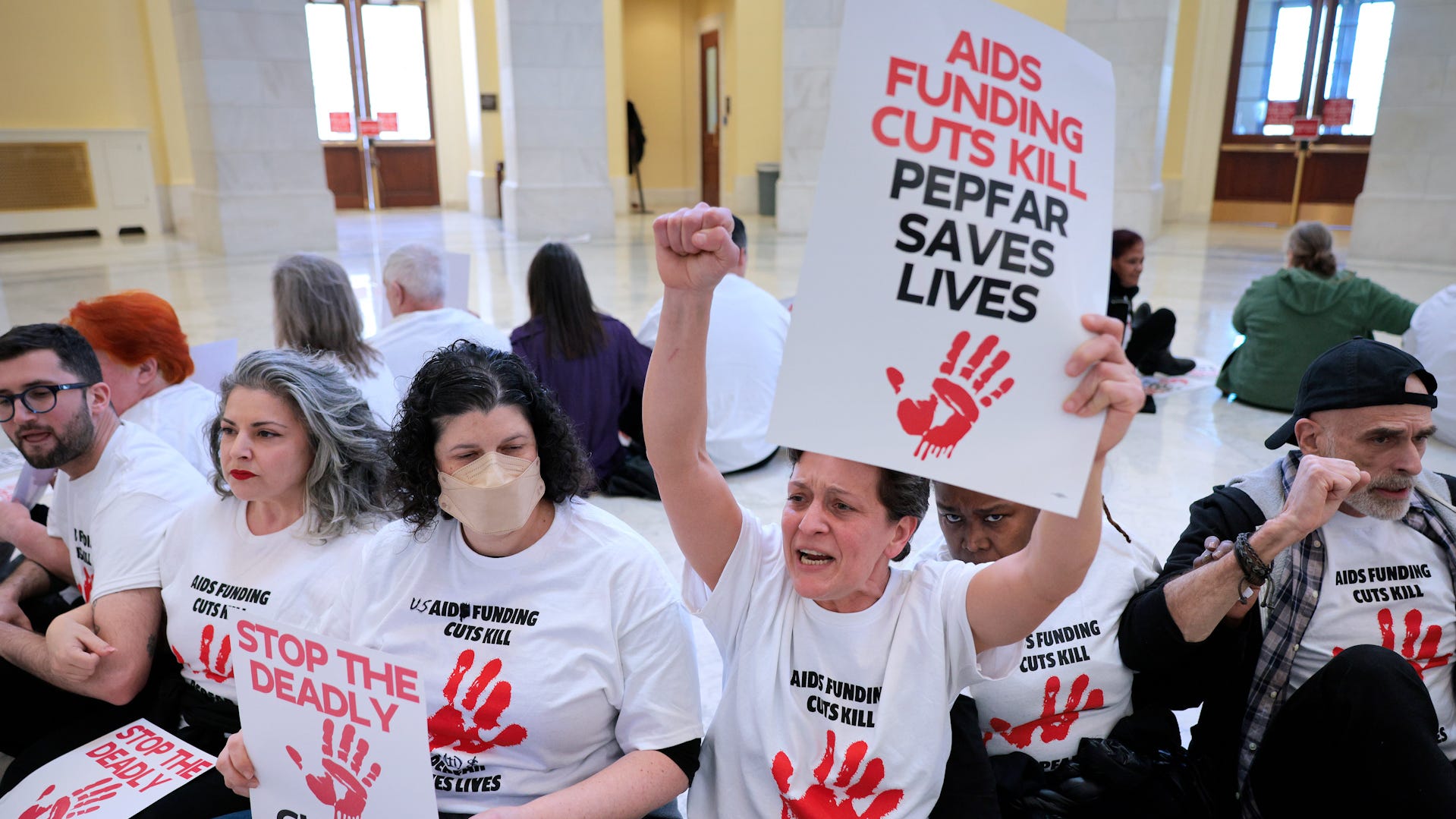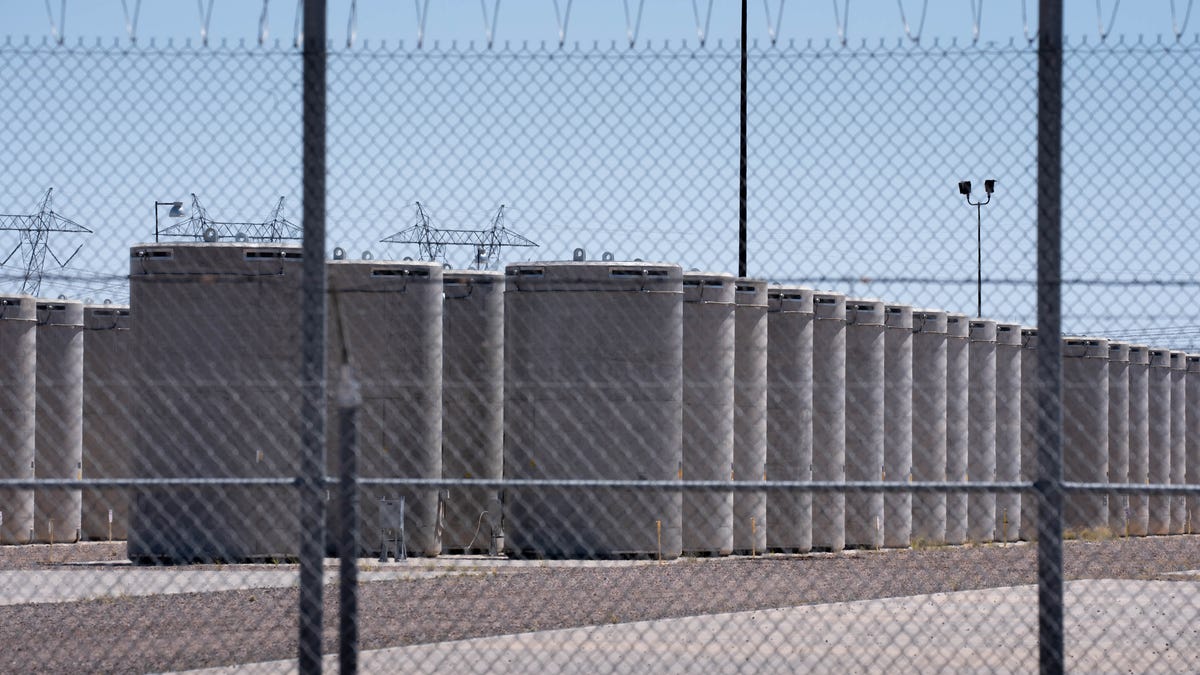
SCOTUS upholds pause on paying foreign aid contractors
The Supreme Court intervened for the first time as judges have temporarily blocked the White House from taking huge steps to reshape the government.
Texas is taking a fight over the country’s nuclear waste to the Supreme Court.
The issue, a Not In My Backyard dilemma involving toxic radioactive nuclear waste, has been swirling for decades. The latest flashpoint, which hits the Supreme Court on Wednesday, involves a proposed storage site in West Texas.
A law passed in 1982 was supposed to have created a permanent dumping ground for nuclear power plant waste − considered dangerous for thousands of years after its produced. Four decades later, no permanent solution exists. The court will hear a challenge to the government’s ability to license private companies to temporarily store that spent nuclear fuel. Texas and private companies want to be able to sue over that.
Texas and local landowners that don’t want the storage sites in their backyard sued to block the Nuclear Regulatory Commission from approving a facility in Andrews County, Texas, near the state’s border with New Mexico.
They argue the commission lacks authority to permit the storage facility, which sits far away from any of America’s nuclear reactors.
The New Orleans-based 5th U.S. Circuit Court of Appeals sided with Texas and the federal government wants the Supreme Court to reverse that decision.
The Justice Department argues the lower court’s ruling “upends the Commission’s 44-year-old regulatory framework for licensing storage of spent fuel” and carries “serious repercussions” for the nuclear power industry.
The Supreme Court could avoid deciding whether the regulatory commission acted lawfully by ruling that Texas and the private companies don’t have the legal ability to challenge the commission’s decision.
Doing so would allow the storage site to proceed.
Or the court could delve into the difficult debate over how to handle nuclear waste in the United States.
Why is there nowhere to put nuclear waste?
Since the U.S. began large-scale nuclear power generation in the late 1950s, nuclear fuel has powered both reactors and political debates over its disposal once it can no longer efficiently generate electricity.
Spent nuclear fuel – metal rods containing uranium pellets and various radioactive byproducts of power generation – remains hazardous for thousands of years and requires specialized storage techniques. The NRC categorizes these rods as “high-level” nuclear waste due to their specialized handling and storage requirements.
The U.S. initially planned to recycle its used nuclear fuel through private sector “reprocessing.” But weapons proliferation fears combined with profitability and regulatory issues led the Carter administration to abandon the strategy in the late 1970s.
Congress passed a set of laws in the 1980s that laid out the country’s “Plan B” – burying high-level waste underground, said Will Yeatman of the Pacific Legal Foundation in a webinar hosted by the conservative-leaning Federalist Society. Lawmakers designated Nevada’s Yucca Mountain as the only authorized site for the Department of Energy to permanently store spent nuclear fuel despite opposition from the state.
The Obama administration, however, effectively nixed the project over political and environmental concerns. (President Donald Trump’s first administration unsuccessfully tried to revive the Yucca Mountain plan, and officials in his current administration signaled interest in reviving consideration of long-term storage sites.)
Meanwhile, spent fuel continues to build up at nuclear facilities. More than 90,000 metric tons of high-level waste awaits disposal, according to the Government Accountability Office. Another private storage facility was proposed in the late 1990s in Utah, and the NRC granted a license in 2006 after two appellate courts rejected legal challenges. But the project never broke ground due to further federal licensing requirements stemming from its geographic location.
Why does Texas want to block the proposed nuclear waste facility?
At present, virtually all civilian-generated spent nuclear fuel is stored on-site or near current and former nuclear power plants. The Texas facility and another site planned for New Mexico would be the first off-site interim nuclear fuel storage facilities in America, according to the non-partisan Congressional Research Service.
The federal government is relying on the Atomic Energy Act of 1954 to license private storage facilities on a shorter time frame than the permanent storage envisioned with Yucca Mountain. But the waste would still sit there for decades.
Texas says that’s not allowed under either the 1954 law or the Nuclear Waste Policy Act of 1982, the law that was supposed to pave the way for permanent storage in a federal facility.
“I will not let Texas become America’s dumping ground for deadly radioactive waste,” Texas Gov. Greg Abbott has said.
Abbott argued the waste facility’s location in the west Texas oil and gas region would prove an irresistible target for terror attacks “because, on top of the tragic loss of human life, [an attack] would disrupt the country’s energy supply.” A bipartisan group of federal lawmakers from the state echoed Abbott’s line in a court filing as well.
The federal government contends neither Texas nor the landowners can challenge the licensing decision because they didn’t have sufficient participation in the Nuclear Regulatory Commission’s proceedings.
The government also says Texas is blaming the commission for failing to build a permanent repository at Yucca Mountain, but Congress has declined for more than a decade to fund the site.
“It’s a multi-decade debacle,” Yeatman said, because Congress never provided a “Plan C.”
A decision in the case is expected by the end of June.
Contributing: Maureen Groppe, USA TODAY
Davis Winkie’s role covering nuclear threats and national security at USA TODAY is funded by a grant from the Outrider Foundation. Outrider does not provide editorial input. If you wish to share a news tip, please contact Davis via email at dwinkie@usatoday.com or via the Signal encrypted messaging app at 770-539-3257.
